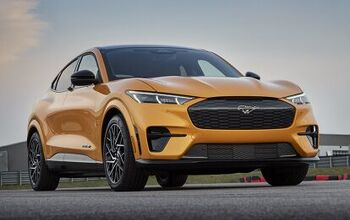Which Nation Tops the List for Vehicle Ownership Per Capita? The Answer Might Surprise You
In 2020, the United States reported a total of 289 million vehicles in operation, making up approximately 18 percent of the global count. This marked a significant increase, more than doubling the number since the 1960s. When exploring car ownership rates on a global scale, it's crucial to understand the variances in ownership, growth trends, and the rising influence of the global middle class on these dynamics.
Worldwide Rankings in Vehicle Ownership
The United States follows with a considerable 860 vehicles per 1,000 people, reflecting a robust vehicle market. Similarly for North America, Canada follows the States with 707 vehicles per 1,000 people. Europe presents a mixed scenario, with Poland and Italy notable for their high vehicle per capita rates. Poland, with 761 vehicles per 1,000 inhabitants, shows substantial vehicle ownership yet has a minimal adoption of electric vehicles. Italy stands with 756 vehicles per 1,000 people just slightly less than Poland. In stark contrast, Norway, with 635 vehicles per 1,000 people, has embraced electric vehicles more extensively, with a significant proportion of its vehicle market being electric.
In the top spot however is New Zealand with 869 vehicle per 1,000 people where the majority of their cars are imported from Japan.
The Surge in Global Vehicle Ownership
The expansion of the global middle class has propelled rapid growth in vehicle ownership in several countries. Vietnam, for instance, has experienced a dramatic increase in motorization, with an annual growth rate of 17 percent between 2015 and 2020. China and India also saw significant rises, highlighting a global trend towards increased vehicle ownership.
Electric Vehicles: The Future of Mobility
Electric vehicles (EVs) are gaining traction worldwide, with China leading the charge. The country houses more than half of the global EV fleet, a testament to its strategic position near essential raw materials for EV batteries and its robust battery production capabilities. Government policies have played a pivotal role in this sector, with China and Norway implementing strategies to overcome operational challenges and promote EV adoption. Norway, in particular, is on a path to eliminate sales of internal combustion engine vehicles by 2025, showcasing the country's commitment to sustainable mobility.
Concluding Thoughts
As vehicle ownership continues to evolve, the global landscape reveals a complex interplay between traditional vehicles and the emerging EV market. Countries like New Zealand and the U.S. demonstrate high vehicle per capita rates, while nations such as Vietnam and China show rapid growth, driven by economic expansion and policy initiatives. The shift towards electric vehicles, led by China and Norway, underscores a global trend towards more sustainable forms of transportation.
This article was co-written using AI and was then heavily edited and optimized by our editorial team.
More by TTAC Staff
Latest Car Reviews
Read moreLatest Product Reviews
Read moreRecent Comments
- Redapple2 4 Keys to a Safe, Modern, Prosperous Society1 Cheap Energy2 Meritocracy. The best person gets the job. Regardless.3 Free Speech. Fair and strong press.4 Law and Order. Do a crime. Get punished.One large group is damaging the above 4. The other party holds them as key. You are Iran or Zimbabwe without them.
- Alan Where's Earnest? TX? NM? AR? Must be a new Tesla plant the Earnest plant.
- Alan Change will occur and a sloppy transition to a more environmentally friendly society will occur. There will be plenty of screaming and kicking in the process.I don't know why certain individuals keep on touting that what is put forward will occur. It's all talk and BS, but the transition will occur eventually.This conversation is no different to union demands, does the union always get what they want, or a portion of their demands? Green ideas will be put forward to discuss and debate and an outcome will be had.Hydrogen is the only logical form of renewable energy to power transport in the future. Why? Like oil the materials to manufacture batteries is limited.
- Alan As the established auto manufacturers become better at producing EVs I think Tesla will lay off more workers.In 2019 Tesla held 81% of the US EV market. 2023 it has dwindled to 54% of the US market. If this trend continues Tesla will definitely downsize more.There is one thing that the established auto manufacturers do better than Tesla. That is generate new models. Tesla seems unable to refresh its lineup quick enough against competition. Sort of like why did Sears go broke? Sears was the mail order king, one would think it would of been easier to transition to online sales. Sears couldn't adapt to on line shopping competitively, so Amazon killed it.
- Alan I wonder if China has Great Wall condos?


































Comments
Join the conversation